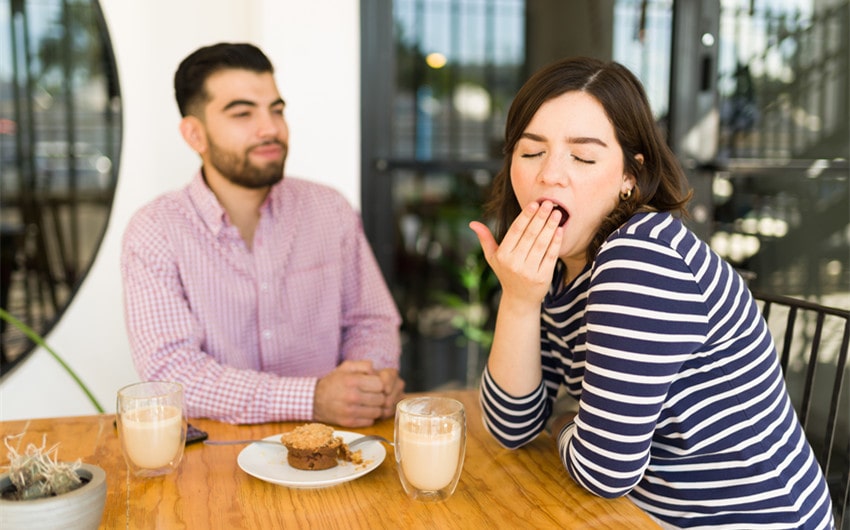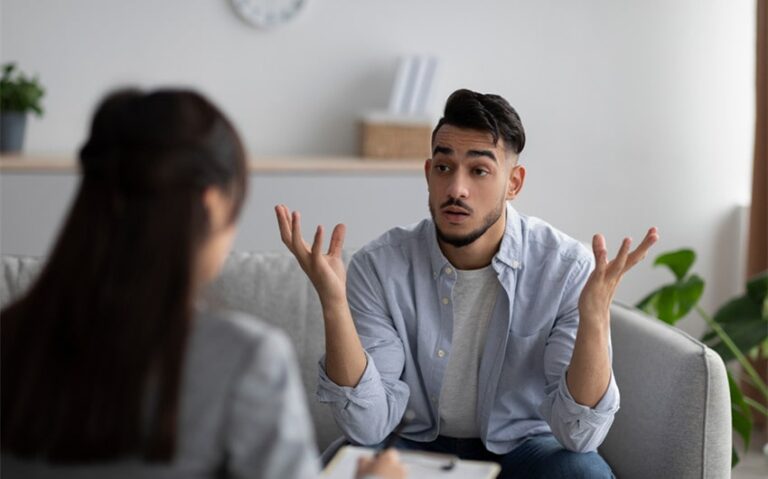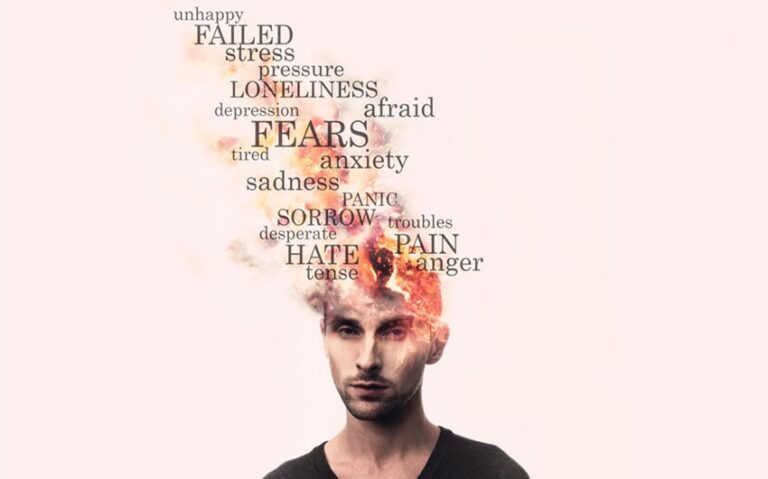Why Do You Get Sleepy Around Your Partner Even When You’re Not Tired?
You’re sitting next to your partner after a long day, and suddenly your eyelids start to droop. You weren’t tired a moment ago, but now you’re struggling to keep your eyes open. Sound familiar? If you’ve ever asked yourself, “Why do I get sleepy around my partner?”—you’re not alone. There’s actually something kind of beautiful and biological behind it, and understanding it might help you appreciate your relationship even more.
It’s Not Just You—This Happens to a Lot of People
You might have noticed the pattern: you’re wide awake when you’re out with friends, running errands, or working. But the moment you settle in beside your partner—maybe cuddled up on the couch or lying in bed—you start yawning. It feels like your body is giving up control, as if your partner has some kind of tranquilizing effect on you. And in a way, they do.
Getting sleepy around someone isn’t weird—it’s a sign that your body and mind feel safe. And that kind of sleepiness is actually packed with emotional and physiological meaning.
The Science of Safety and Relaxation
Here’s the short version: your nervous system is deeply wired to respond to your environment. When you’re with someone you trust—especially in a cozy, calm setting—your parasympathetic nervous system kicks in. That’s the part of your body’s control center that governs rest, digestion, and relaxation. It slows your heart rate, relaxes your muscles, and tells your brain: “It’s safe now. You can rest.”
This is often called the “rest-and-digest” mode, and it’s the opposite of fight-or-flight. Being near your partner, if they make you feel secure and cared for, might actually put you into that peaceful state more quickly than being alone. So when you start feeling sleepy, it’s not boredom—it’s your body whispering, “You’re okay here.”
Emotional Intimacy and Oxytocin
Physical closeness with someone you love triggers the release of oxytocin—often called the “love hormone.” It’s the same chemical that floods your system during hugs, cuddles, and even eye contact. Oxytocin helps reduce cortisol, the stress hormone, and makes you feel bonded and calm.
So when you’re snuggled next to your partner, that cocktail of oxytocin and lowered cortisol can create a gentle wave of drowsiness. It’s not that your brain is switching off—it’s that it finally feels like it doesn’t have to be “on.”
Touch, Warmth, and Comfort Signals
There’s also something primal about being close to a warm body. It reminds your brain of early childhood or even infancy, when warmth and closeness meant safety, nourishment, and sleep. Whether you’re spooning in bed or resting your head on their shoulder, your body receives subtle signals that it can drop its guard. Your breathing might sync. Your heartbeat slows. And your mind softens.
Even if you weren’t consciously tired, your subconscious interprets these cues as a green light to unwind—and that often leads straight to sleepiness.
Your Energy Might Shift Around Them
Ever notice how you can power through stress at work or stay alert during busy social events, but when you’re finally alone with your partner, your whole energy level crashes? That’s because you’re no longer in “performance” mode. You’re not trying to impress, hustle, or multitask. Being with someone who knows the real you—who loves you without masks—can let your mind exhale.
Sometimes, you don’t even realize how much energy you’ve been using until you’re around someone who doesn’t require any. That emotional ease can turn into physical fatigue—like your body’s way of catching up and saying, “Let’s rest now.”
You Might Just Finally Feel Safe Enough to Sleep
For some people, sleep doesn’t come easily. Maybe you’ve struggled with insomnia or racing thoughts. But around your partner, things are different. You don’t have to be hypervigilant. You don’t need to stay alert or manage your surroundings. That sense of security—of being held, emotionally or physically—can finally allow your nervous system to relax into rest.
Even if you’re not lying in bed or it’s the middle of the afternoon, your body recognizes the feeling and reacts accordingly. That safety doesn’t have to be grand. It could be the simple sound of their voice, the rhythm of their breathing, or the quiet way they sit next to you. All of it adds up to peace—and peace invites sleep.
What If You Feel Self-Conscious About It?
If you’ve ever worried that your sleepiness might come across as disinterest, rest assured—it’s probably the opposite. Many partners find it sweet, even flattering, when you’re so comfortable around them that you nod off mid-movie or start yawning during a cozy dinner. It’s a nonverbal way of saying, “I trust you. I’m safe with you.”
That said, if it ever becomes a pattern you want to shift—say, you’re falling asleep every time you try to have a deep conversation—it’s okay to reflect on how your energy levels are being managed overall. Sometimes your body may be telling you it needs more rest outside of your relationship, too.
When Sleepiness Might Mean Something Else
While most of the time, getting sleepy around your partner is a sign of safety and comfort, there are moments when it’s worth checking in with yourself. Are you using their presence as a way to shut down emotionally? Are you exhausted from carrying emotional labor elsewhere in the relationship?
If your sleepiness feels more like emotional shutdown than peaceful surrender, it’s okay to explore that gently. Ask yourself: Am I truly at ease? Or am I overwhelmed and seeking escape? There’s no shame in either answer. But getting curious can help you deepen your self-awareness—and your connection.
Rest Is a Love Language, Too
Maybe you’ve thought love was about staying alert, performing, or doing things together. But sometimes, it’s about resting together. Feeling safe enough to drift off—without explanation or apology—is one of the quietest, most honest signs of intimacy. So the next time you find yourself dozing off beside your partner, know this: it might just be your body’s way of saying, “I love you, and I feel at home.”






